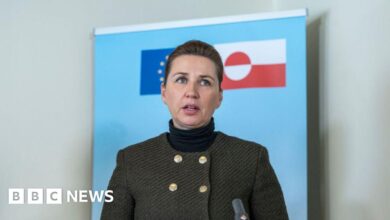Censorship is not to prevent hateful online content, the United Nations human rights chief affirmed


“Allowing hate speech and harmful content online has real consequences. This content curation is not censorship,” Volker Türk wrote on X.
In a longer LinkedIn post on the same topic, Mr. Türk asserted that efforts to create safe online spaces amount to “censorship…ignorance[s] the fact that the space is uncontrolled means some people are silent – especially those who are often marginalized. At the same time, allowing hatred online limits free speech and can lead to real-world harms.”
Meta chief Mark Zuckerberg announced last Tuesday that the company would discontinue its fact-checking program in the United States, saying fact-checkers risked appearing politically biased, with self-regulation leads to too much censorship. He called for a return to freer speech on Meta’s platform, adding that user trust had been eroded.
The International Fact-Checking Network (IFCN) is said to have rejected Mr. Zuckerberg’s “false” argument and warned it could be harmful.
Digital potential
Mr. Türk emphasized that social media platforms have great potential to positively shape society by connecting people. But they can also cause conflict, incite hatred and threaten people’s safety.
“At its best, social media is a place where people with different views can exchange, if not always agreehe said.
The UN human rights chief noted that he would continue to call for “accountability and governance in the digital space, consistent with human rights. This protects public discourse, builds trust and protects the dignity of all.”
When asked about the impact of Meta’s recent decisions on the United Nations’ social media policy, the United Nations spokesperson in Geneva emphasized that the global organization continuously monitors and reviews online space prices.
“It is important for us to provide fact-based information,” said Michele Zaccheo, Director of Television, Radio and Webcasts. He added that the United Nations remains committed to providing evidence-based information on social media platforms.
World Health Organization (WHO) also reaffirms its commitment to providing quality, science-based health information, maintaining a presence across various online platforms.
In response to the growing crisis caused by digital disinformation, the United Nations Department for Global Communications (DCG) has been actively working to counter false narratives.
This includes developing an information integrity code of conduct, known as United Nations Global Principles on Information Integrity.




